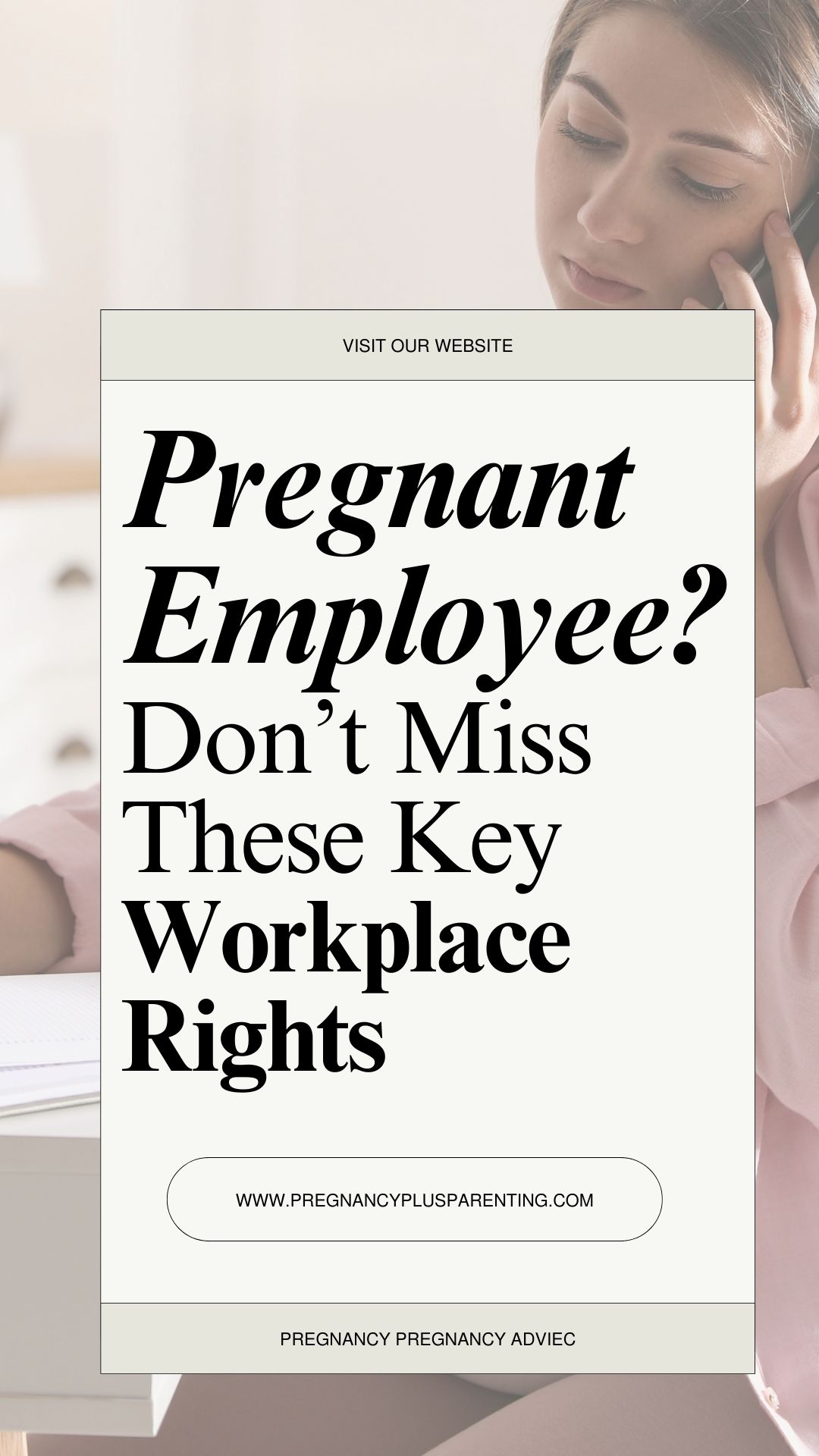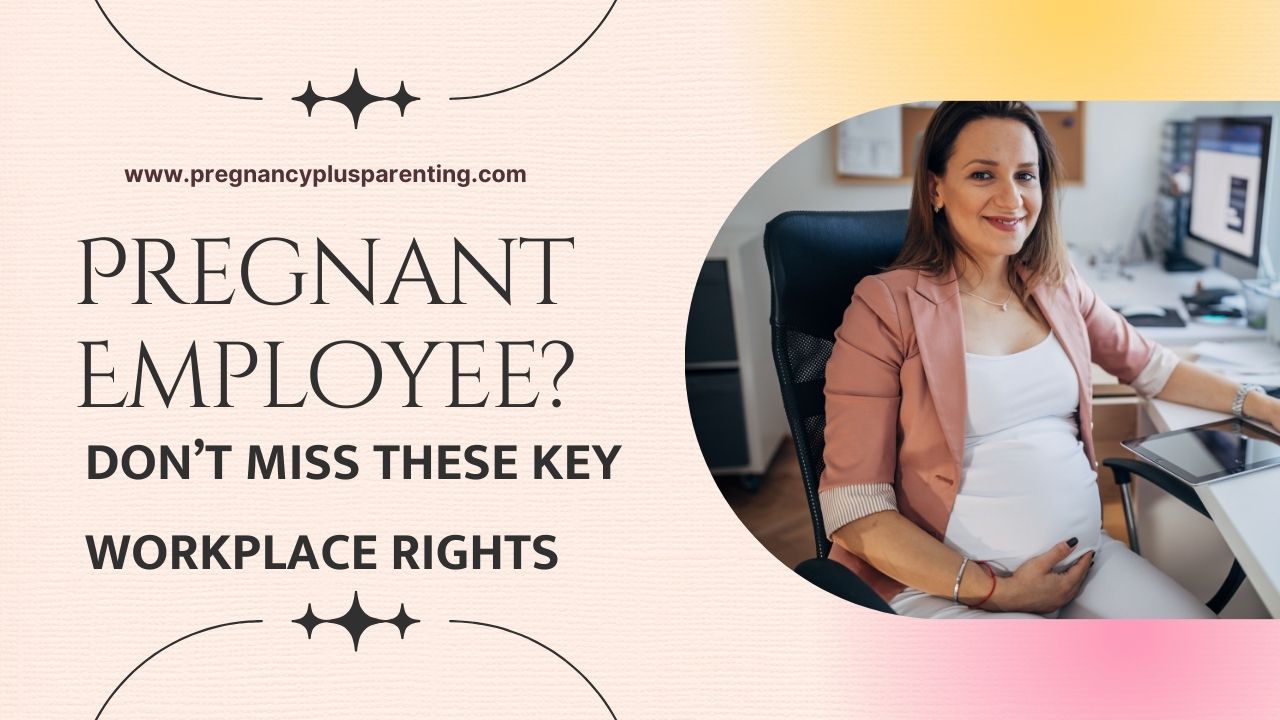Pregnant Employee? Don’t Miss These Key Workplace Rights
Congratulations, you’re expecting a child! This exciting time brings with it many changes – including at work. With the beginning of this wonderful journey, many questions arise: What am I still allowed to do? What are the rules regarding maternity leave ?
Our guide will give you the answers you’re looking for and equip you with the knowledge you need to protect your rights and fulfill your responsibilities. So you can focus fully on your future happiness and navigate your work situation with confidence and security.
What am I entitled to? – Your rights as an expectant mother
During this life-changing phase, you are not only the bearer of a new life, but also the bearer of special rights at work. These rights ensure that you can enjoy your pregnancy without professional disadvantages. They are your bulwark against excessive stress and potential dangers, both for you and your unborn child.
It’s important that you learn about these rights early on and exercise them for yourself. The legal regulations are designed to create a safe space for you to prepare for impending motherhood. Consider them part of the care package that accompanies you and your baby on your journey into life.
Maternity protection: A protective shield for you and your baby
From the first day of your pregnancy, you are protected by the Maternity Protection Act . This law ensures that you are not assigned dangerous or difficult work and that you are protected from dismissal.
The most important points:
- Maternity leave : 6 weeks before birth to 8 weeks after birth; this period is extended in the case of premature births and multiple births.
- Working hours : No night work between 8 p.m. and 6 a.m. and no overtime.
- Protection against dismissal : From the beginning of pregnancy until four months after birth, dismissal is not permitted.
Your right to parental leave
Parental leave is a right you are entitled to and allows you to take a break from work for up to three years without losing your job. You have the flexibility to take it all at once or in parts.
Fathers also have the right to take parental leave, which is a great opportunity for shared responsibility and care.
Remember to notify your employer in writing of your parental leave at least seven weeks before the planned start date. It’s also important to note that you’ll continue to be covered by pension insurance during parental leave, which provides additional security for your future.
The most important points:
- Duration : Up to three years of parental leave per child.
- Registration : Parental leave must be submitted to the employer in writing at least seven weeks before it begins.
- Division : Parental leave can be divided into up to three periods per parent.
- Partnership use : Both mothers and fathers can take parental leave, even at the same time.
- Work : During parental leave, part-time employment of up to 30 hours per week is permitted.
- Protection against dismissal : There is special protection against dismissal during parental leave.
- Pension insurance : Contributions to pension insurance continue to be paid, partly by the state.
- Return : After parental leave, you are entitled to return to your previous working hours.
- Parental allowance : During parental leave, you can apply for parental allowance, which partially replaces your income.
Part-time work: flexibility for families
In Germany, the Part-Time and Fixed-Term Employment Act (TzBfG) provides the legal basis for both the right to part-time work and the right to return to full-time employment after a period of part-time work. This law allows employees to reduce their working hours, provided there are no operational reasons to the contrary and the employer generally employs more than 15 people.
With the introduction of so-called bridge part-time work through the Introductory Act to the Employment Contracts Act (EinfAG) in 2019, this right was expanded. Employees in companies with more than 45 employees who have been employed for at least six months can now request a reduction in their working hours, which applies for a predetermined period of one to five years. After this period, they have the right to return to their previous working hours without the employer being able to object, unless there are urgent operational reasons.
The right to return to full-time work depends on the availability of a suitable position and the absence of conflicting operational reasons. Employees must give timely notice of their desire to return to full-time work so that the employer can take the necessary organizational measures. Collective agreements or company agreements may contain additional provisions that deviate from the statutory provisions and establish more favorable conditions for employees.
The most important points:
- Right to part-time work : Employees can reduce their working hours provided the employer has more than 15 employees and there are no operational obstacles.
- Eligibility requirements : To be eligible for part-time work, you must generally have been employed in the company for at least six months.
- Bridge part-time : In companies with more than 45 employees, a temporary reduction in working hours is possible for a period of one to five years.
- Right of return : After the end of the bridge part-time period, there is the right to return to the previous full-time job, unless operational reasons prevent this.
- Notice periods : Employees must give notice of their wish to return in good time to enable the employer to plan accordingly.
- Collective agreements and company regulations : These may deviate from the legal standard and may offer more favorable conditions.
Part-time work is a fantastic option for balancing work and family life. It allows you to manage your working hours and family commitments flexibly while still remaining professionally active.
It is important that you clarify the details with your employer early on in order to find a solution that suits both sides.
What is expected of me? – Your responsibilities
When you are pregnant, you are not only responsible for yourself and your unborn child, but also for your employer and colleagues.
It starts with informing your employer about your pregnancy as early as possible. This allows them to take the necessary steps to protect your health at work and plan your absence during maternity leave.
Your responsibilities also include adhering to all health and safety regulations relevant to your position to minimize risks to you and the child. You should also schedule check-ups to minimize disruption to operations.
If you become ill before giving birth, it is important that you inform your employer immediately so that we can work together to find a solution for upcoming tasks and projects.
Report your pregnancy
As soon as you learn of your pregnancy, you shouldn’t hesitate to share the news with your employer. Notifying them promptly not only ensures your right to maternity leave but also demonstrates your respect for the company’s planning. Your employer will then be able to increase your workplace safety and take statutory protection periods into account.
It’s also a sign of professionalism to be open and proactive about your situation. This allows early action, such as adjusting your tasks or working hours, to be taken to avoid overload.
It also opens the door to future discussions regarding parental leave and returning to work. Confidentiality is a given; your employer is obligated to protect your personal data.
The most important points:
- Early information : Inform your employer about your pregnancy as early as possible.
- Maternity protection entitlement : Secure your legal protection rights and enable appropriate workplace design.
- Open dialogue : Promote good communication for future planning such as parental leave and returning to work.
Medical examinations and courses
Medical examinations and courses are essential components of pregnancy to ensure the health of mother and child. As an expectant mother, you have the right to attend these appointments without fear of losing your income.
It’s advisable to inform your employer of upcoming appointments well in advance so they can plan accordingly. If possible, try to schedule appointments outside of your working hours to minimize disruption to operations.
Childbirth preparation classes, often attended as a couple, offer valuable information and techniques for a safe and conscious birth. They not only strengthen your physical readiness but also your mental well-being. By sharing experiences with other expectant mothers, you can also build a support network that will last beyond the birth.
The most important points:
- Right to leave : You have the right to attend medical examinations during pregnancy without loss of salary.
- Advance notice : Inform your employer about your appointments in advance to ensure smooth planning.
- Birth preparation classes : Take advantage of the opportunity to attend birth preparation classes to prepare yourself physically and mentally for the birth.
Health and safety at work
Workplace health and safety are a top priority during pregnancy, as the well-being of two people is at stake. It’s crucial that you actively maintain a safe work environment and report potential hazards.
The employer is required to conduct a risk assessment and, if necessary, make adjustments to protect you and your child. This may include modifying your duties, providing additional breaks, or ergonomic work equipment. If necessary, even a change of workplace may need to be considered.
Your open communication and commitment to adhering to safety regulations will contribute significantly to a healthy pregnancy. Regular participation in health and safety training, if offered by your employer, is also part of your responsibility.
The most important points:
- Risk assessment : The employer must assess potential risks and take appropriate protective measures.
- Adaptation of working conditions : If necessary, work tasks, break arrangements and the workplace itself must be adapted to ensure safety.
- Communication and training : Active communication about safety concerns and participation in safety training are critical to minimizing risks.
Additional tips for a worry-free pregnancy at work
Pregnancy is a special event, and it’s important that you feel comfortable and supported at work. Plan ahead, especially when it comes to scheduling your tasks and preparing for maternity cover.
It can also be helpful to build a network within the company, for example, by connecting with other expectant or experienced parents. Remember to take time for yourself and use breaks to avoid stress and maintain your energy.
By taking these extra steps, you can create a balance between your health and your professional role that allows you to enjoy this exciting time without unnecessary worry.
Financial support
Find out about financial support options such as maternity and parental benefits. These benefits will help you be financially secure if you decide to stay at home.
Build a network
Connect with other expectant mothers in your company. Sharing information and support makes everything easier.
Knowledge is power
Stay up to date on changes in employment law and don’t hesitate to seek legal advice if you are unsure.
Remember: You are not alone!
Pregnancy is a time of joy and growth, but also of uncertainty and questions. Remember that you are not alone. Use the resources available to you and don’t be afraid to ask for help.
Your workplace should be a safe place for you and your growing baby. Knowing your rights and responsibilities will help you approach this new phase of your life calmly and confidently.







